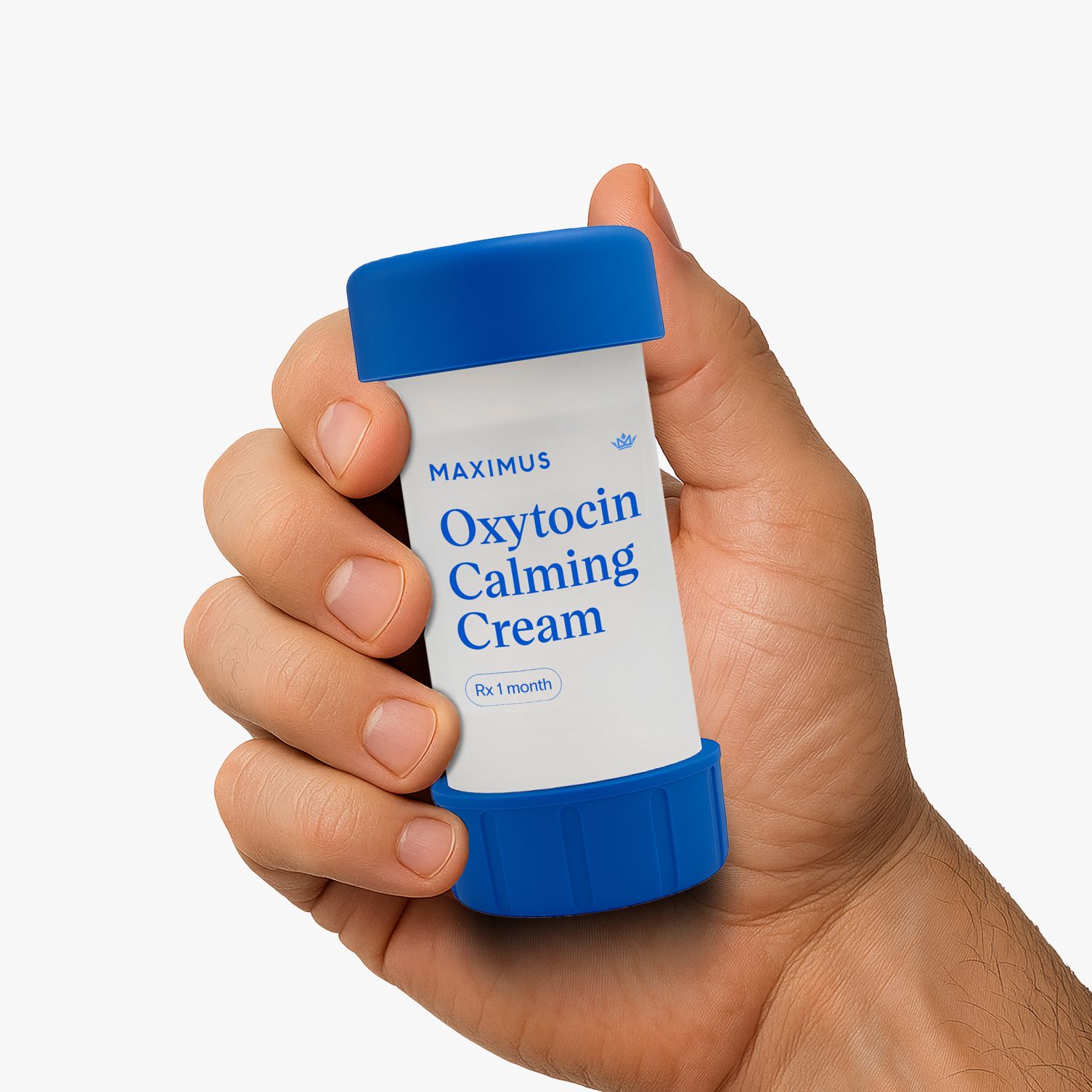Key takeaways:
- Every emotion — even grief — is important because it drives us to learn, grow, and take action.
- Suppressing your emotions can have a negative impact on your mind and body.
- Expressing your grief helps you reduce physical and emotional stress, foster emotional vulnerability, and create deeper bonds with your loved ones.
If you’ve ever gone to great lengths to avoid feeling grief, you’re one of many. Grief is disruptive, uncomfortable, and most of all, painful. It can also impact your health, worsening pre-existing health conditions and even contributing to new ones.
Often, grief doesn’t disappear in a few days like a cough or cold — it can take a long time to heal. And since that can be uncomfortable, many people push their feelings below the surface to carry on, whether it's to take care of family, keep relationships afloat, or go back to work.
The bad news is, suppressing your grief isn’t going to make it disappear for good. As Dr. Cam, CEO of Maximus, says “If it’s stuck there unmetabolized, it’s still sitting within you. And that’s the thing that men don’t realize, is that when we suppress our grief, we also suppress all of our joy.”
That’s right — to experience the highs of joy, it's important to be open and prepared to feel the lowest depths of grief, too.
Why are our emotions important?
Emotions and behaviors stem from the brain’s limbic system, which consists of the hippocampus, hypothalamus, amygdala, limbic cortex, and other important structures. Results from one study show that humans experience 27 distinct emotions — including joy, anger, sadness, fear, surprise, guilt, shame, disgust, embarrassment, and pride.
Our emotions serve many important roles, like helping us respond to danger, make better decisions, act quickly, and form strong and meaningful bonds. Being aware of emotions and processing them also helps us build emotional resilience.
Let’s take a look at what happens when you suppress your emotions
Emotional suppression occurs when thoughts and feelings that feel uncomfortable are pushed away, or buried with the help of distraction tactics. Beyond wanting to avoid uncomfortable feelings, many people repress emotions because they don’t feel safe expressing themselves. While this may provide some relief initially, over-reliance on avoiding and suppressing emotions can prolong and complicate them.
Some research suggests that bottling up emotions actually increases their severity rather than providing relief. This can contribute to unhealthy coping mechanisms like substance abuse or overeating, increased anxiety and depression, and increased aggression.
Grief can also be hard on the body. Being in a period of grief often triggers the body’s fight or flight response and there’s a good chance your body may release more of the stress hormone cortisol. This isn’t great, because when your cortisol levels remain elevated for too long, you can be at higher risk of heart disease and other health conditions. Grief can also weaken your immune system and contribute to inflammation.
Here are some tips for embracing your emotions, even if it’s hard
When you get used to pushing down negative emotions, you also start to push down the positive ones. Which means it’s hard to feel genuine happiness, and that definitely isn’t ideal.
Luckily, there are many healthy ways to feel, move through, and regulate your emotions.
Here are some tips:
1. Move your body
Rather than drowning yourself in stimulants and other unhealthy habits to get your mind off an uncomfortable feeling, try moving through it by playing sports, hitting the gym, or heading out for a walk in nature.
2. Talk to someone
What better way to lay out your emotions than by saying them aloud? Talk to a loved one about how you’re feeling. Practice by using “I” statements, for example, “I feel anxious,” or “I feel sad about ___.” Not your jam? Try journaling, which gives you a chance to organize your thoughts and make them easier to articulate when you feel safe and comfortable to do so.
3. Express yourself through art
You don’t need to be a famous artist to use creativity as an outlet. Listen to music, write questionable poetry, paint a silly tree, or draw a crab in the sand. This is also a good way to check in with yourself and how you’re feeling, especially if you have trouble speaking about your feelings.
4. See a mental health professional
You don’t need to wait until you hit rock bottom to see a professional. A therapist can listen to you without judgment, help you unpack and process trauma and tough experiences, and offer guidance and support as you begin to address your emotions.
Dr. Cam’s Health Hack
It’s helpful to realize that grief isn’t punishment, but proof that love was there, and that joy is waiting. It comes in many different forms and can arise from many different situations. As Dr. Cam says:
“Weekly Wisdom: The biggest growth you’ll experience as a human being is accepting the loss of the living. Most people think that grief is just for people who’ve died, but it should also be practiced for relationships and even homelands that we’ve lost. As Martin Prechtel said, ‘Grief is praise, for it’s the natural way that love honors what it misses.’”
Disclaimer: The contents of this article, including, but not limited to, text, graphics, images, and other information, is for information purposes only and does not constitute medical advice. The information contained herein is not a substitute for and should never be relied upon for professional medical advice. The content is not meant to be complete or exhaustive or to be applicable to any specific individual's medical condition. You should consult a licensed healthcare professional before starting any health protocol and seek the advice of your physician or other medical professional if you have questions or concerns about a medical condition. Always talk to your doctor about the risks and benefits of any treatment. Never disregard or delay seeking professional medical advice or treatment because of something you have read on this site. Maximus does not recommend, endorse, or make any representation about the efficacy, appropriateness, or suitability of any specific test, products, procedures, treatments, services, opinions, healthcare providers or other information contained herein. Maximus is not responsible for, nor will they bear any liability for, the content provided herein or any actions or outcomes resulting from or related to its use.





